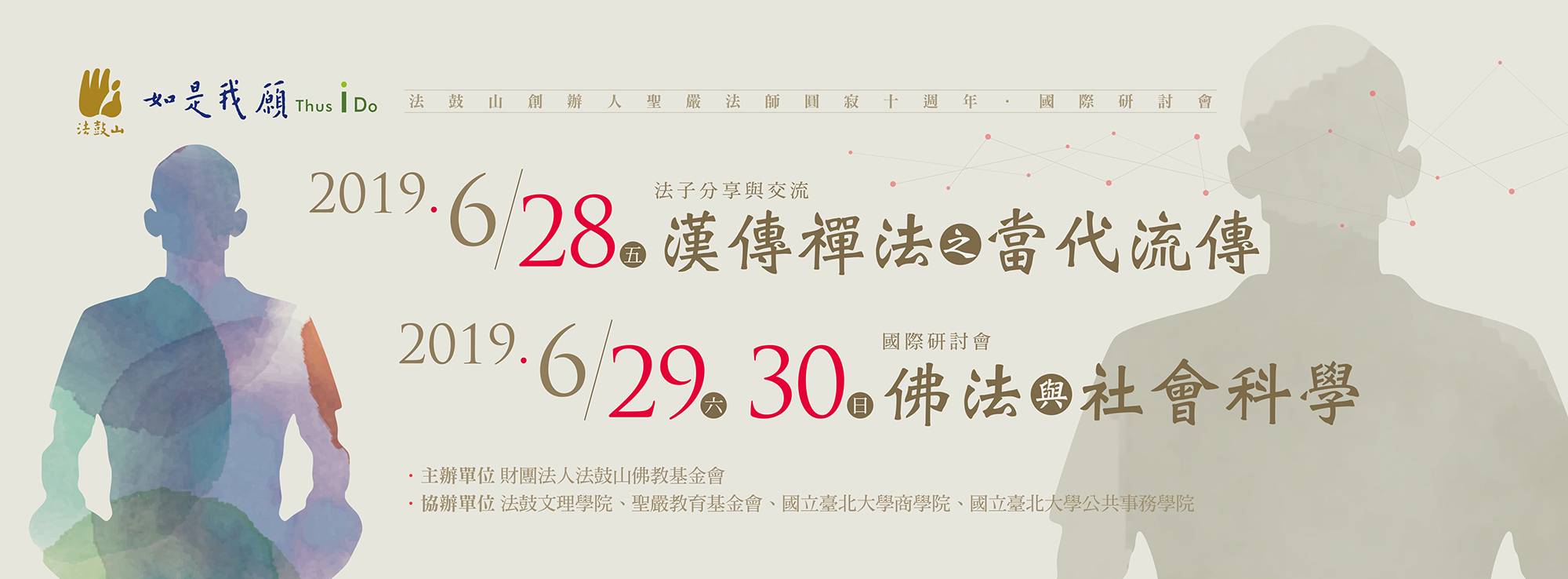The Abbots’ Leadership at the Chan Temples in Song Dynasty:
On the Character Comments in Treasured Instructions of Chan Temples
Wen-bi Xu
Some scholars believe that the sect of Chan undergoes the full Sinicization after Buddhism enters China and is deeply influenced by the Confucian culture. This has created a deep change in the way of leading the followers to practice Buddhist teachings in the Chinese Buddhism. From “six harmonies” in the India period, which is the monk management as a council, then the Pure Rules of Baizhan in Tang Dynasty, which is the exemplary management that “One day without work, one day without eating,” to finally the abbot-centered patriarchal management monk groups in the Chan temples in Song Dynasty, such transformation highlights that in the face of the political and social pressure at that time, the Chan temples in Song Dynasty has to transform in response to the demand of the time. This also corresponds to the concept that the monk groups in different times have to meet the different requirements. To successfully practice the Buddhist teachings among the public, they have to keep their own core heritage and follow the changes with the time.
Treasured Instructions of Chan Temples is about the issues how the Chan masters in Song Dynasty, including Master Qisong and those after him, introduce the Confucian thinking into their management and education without affecting the core of the Chan teachings in response to the changes in the political ruling of the court and the rise of Neo-Confucianism.
This book collects the great words and deeds of the famous Chan masters in both Song Dynasties, especially the proposition of the important management of principles in terms of the demands for abbots and the cultivation for disciples. It has a deep influence on Chan in Ming and Qing Dynasty and is worth our deep discussion. To know the present through the past experience, this paper discusses the Chan abbots’ leadership in Song Dynasty, focusing on the words of the Chan masters in commenting on the disciples and peers in Treasured Instructions of Chan Temples to analyze the Chan masters’ comments on people and the difference between Chan school’s discourse on people and the traditional Buddhist discourse. At the same time, this paper also discusses how Treasured Instructions of Chan Temples argues and comments on the virtues of the propagators and managers and what looks it expects for good knowledge and good seniors. Finally is the general argument about the reasons why the Chan school creates such comments on people for the reference of the modern temples in management and talent observation.
